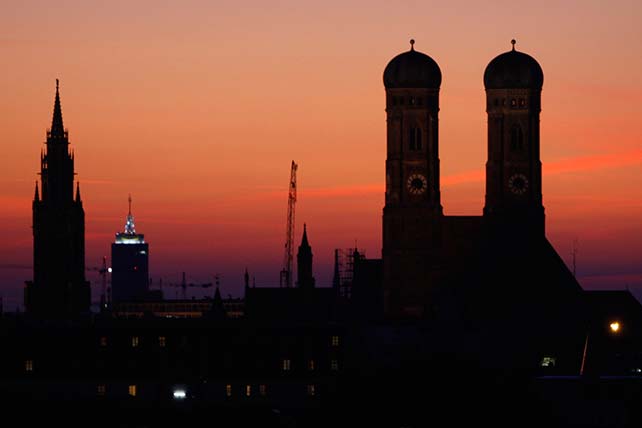BERLIN (AP) — A long-awaited report on sexual abuse in Germany’s Munich diocese on Thursday faulted retired Pope Benedict XVI’s handling of four cases when he was archbishop in the 1970s and 1980s. The law firm that drew up the report said Benedict strongly denies any wrongdoing.
The findings, though, were sure to reignite criticism of Benedict’s record more than a decade after the first, and until Thursday only, known case involving him was made public.
The archdiocese commissioned the report from law firm Westpfahl Spilker Wastl nearly two years ago, with a mandate to look into abuse between 1945 and 2019 and whether church officials handled allegations correctly. The law firm examined church files and spoke to witnesses.
The archdiocese and the law firm said top church officials weren’t informed of the results ahead of its publication. The current archbishop — Cardinal Reinhard Marx, a prominent reformist ally of Pope Francis — was faulted in two cases. Marx scheduled a statement later Thursday.
Marx’s predecessors include the former Cardinal Joseph Ratzinger, who served in Munich from 1977 to 1982 before becoming the head of the Vatican’s Congregation for the Doctrine of the Faith and later being elected as pope. Benedict gave extensive written testimony for the report.
“In a total of four cases, we came to the conclusion that the then-archbishop, Cardinal Ratzinger, can be accused of misconduct,” said one of the reports’ authors, Martin Pusch.
Two of those cases, he said, involved perpetrators who offended while he was in office and were punished by the judicial system but were kept in pastoral work without express limits on what they were allowed to do. No action was ordered under canon law.
In a third case, a cleric who had been convicted by a court outside Germany was put into service in the Munich archdiocese and the circumstances speak for Ratzinger having known of the priest’s previous history, Pusch said.
When the church abuse scandal first flared in Germany in 2010, attention swirled around another case: that of a pedophile priest whose transfer to Munich to undergo therapy was approved under Ratzinger in 1980.
The priest was allowed to resume pastoral work, a decision that the church has said was made by a lower-ranking official without consulting the archbishop. In 1986, the priest received a suspended sentence for molesting a boy.
Another of the report’s authors, Ulrich Wastl, said Benedict’s claim not to have attended a meeting in 1980 in which the priest’s transfer to Munich was discussed lacks credibility.
“In all cases, Emeritus Pope Benedict XVI strictly denies any wrongdoing on his part,” Pusch said, and the retired pontiff cites largely “lack of knowledge of the facts and a lack of relevance under canon and criminal law.” But he added that the assertions of lack of knowledge were sometimes “hard to reconcile” with the contents of church files.
Matthias Katsch of Eckiger Tisch, a group representing German clergy abuse survivors, spoke of a “historic” moment. “This building of lies that was constructed here in Munich to protect Cardinal Ratzinger, Pope Benedict, collapsed today,” he told German news agency dpa.
“To us, this is not shocking news,” SNAP, a network representing survivors of sex abuse by clergy, said in a statement. “Sadly, we see these unsavory actions and inactions surface years later after lengthy silence by church officials and painful memories harbored by victims.
The Vatican spokesman, Matteo Bruni, said the Holy See would hold off comment until it had read the report in full and could give the contents “careful and detailed examination.”
“In reiterating shame and remorse for abuses committed by clerics against minors, the Holy See expresses its closeness to all victims and reaffirms the efforts undertaken to protect minors and ensure safe environments for them,” he said in an emailed statement.
Benedict’s former spokesman declined to comment in advance, deferring any response to the Munich archdiocese.
Benedict’s legacy as pope had already been colored by the global eruption in 2010 of the sex abuse scandal, even though as a Vatican cardinal he was responsible for turning around the Vatican’s approach to the issue.

